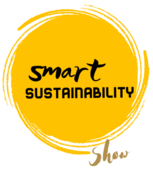The Queen’s Code: Fortifying the Future for Bees
When you think about the tiny creatures that hold the future of our food systems in their wings, honey bees might not immediately come to mind. But they should:
Bees are among nature’s most extraordinary engineers—pollinating nearly one-third of the food we eat, from apples to almonds, blueberries to broccoli. Without them, grocery store shelves would look much emptier, and our ecosystems far less resilient.
Yet for all the value they bring, bees have been in trouble for years. Habitat loss, disease, pesticides, climate shifts—they’ve all piled on, turning what was once a buzzing symbol of abundance into a species under pressure.
But scientists, farmers, and bee lovers alike are fighting back. At the forefront of that effort is a hive of innovation coming out of North Carolina State University.
in the Service of Pollinators
Led by Dr. David Tarpy and a dedicated team of researchers, NC State’s Apiculture Science Program is working to understand, protect, and promote bee health in profound and practical ways.
From investigating the genetics of queen bees to unraveling the secrets of disease transmission within hives, their research is helping uncover not just what’s going wrong—but what can be done right.
One of their key discoveries: the health of a colony often starts at the top—with the queen. Now, for observers, this is not a surprise. The saying “the fish rots from the top” isn’t just an old wives tale. It has a spiritual creation-driven origin. In human’s lives, too, thoughts are the primary creators of reality, including health.
The bees show us how that is linked: “If you’ve got a healthy queen, you’ve got a strong colony,” says Dr. Tarpy. And it turns out, not all queens are created equal. Some are better suited to local environments, more resistant to disease, and more productive in laying eggs that turn into worker bees.
This has opened up an exciting frontier in bee breeding—and that’s where innovation really takes flight.
Meet the Queen: Smart Breeding for Stronger Colonies
Imagine being able to trace the genetics of a queen bee the way we track ancestry in people. That’s exactly what the NC State team is doing, using DNA testing and behavioral analysis to breed queens that are healthier, more resilient, and better adapted to their regions.
Their Queen & Disease Clinic, open to beekeepers across the country, allows apiaries to send in their queens for assessment. Scientists then provide insight into their health, mating quality, and potential vulnerabilities. For hobbyist beekeepers and commercial operators alike, it’s a powerful tool to improve hive success—and longevity.
It’s also a major step in helping the entire beekeeping industry shift toward sustainability.
“We’re working to move beekeeping from an art into a science,” says Tarpy. And the more we know, the more we can protect.
But science alone won’t save the bees. They also need food, habitat, and space to do what they do best: pollinate.
That’s why NC State’s work doesn’t stop in the lab. Their Extension programs are bringing the latest research directly to the field—literally.
Through educational outreach, workshops, and partnerships with farmers, landscapers, and policymakers, they’re helping create pollinator-friendly spaces that give bees a fighting chance. Think native wildflower strips, pesticide-free zones, and backyard gardens designed with nectar in mind.
It’s a reminder that everyone can play a part, from backyard gardener to agricultural professional.
Bee Health is Human Health
This isn’t just about saving insects—it’s about protecting the web of life that sustains us all. Bees don’t just pollinate crops; they support entire ecosystems. Lose them, and we risk unraveling food chains, biodiversity, and agricultural security.
The work being done at NC State is about more than bees—it’s about resilience, sustainability, and a new model of living with nature, not against it.
And while the challenges are complex, the path forward is clear: reconnect with nature, observe, learn, share knowledge, and create landscapes where pollinators can thrive.
Everyone can do something!
You don’t need a lab coat or a hive to make a difference. Here are three simple ways to support pollinators in your daily life that enrich bee life — and with it your own:
Plant native flowers that bloom at different times of the year.
Avoid pesticides, especially those harmful to bees like neonicotinoids.
Support local beekeepers by buying local honey and bee-friendly products. Local honey is the rolls royce in herbal plant knowledge. Why? Because local honey educates your immune system. Watch this clip, with Dr. Brian Keenan, naturopathic doctor on the Smart Sustainability show, why local honey is good for you.
Every act, no matter how small, adds to the buzz of keeping bee life healthy.
In the delicate hum of a bee’s wings is the sound of nature at work—fertile, interdependent, alive. Protecting bees means protecting the richness of our world, from what we eat to the ecosystems we rely on. Bees produce more than just honey!
Check out our Fascination Nature site and subscribe to read more about bees.
There are many things we can do. It all starts with an appreciation of what bees contribute to our health, to our organism, to our maintenance of staying healthy; their tremendous contribution to the ecosystem in its fullness. And how they keep the natural world in order.
Teaching kids not to be afraid of bees and staying calm when one visits, is another huge step that can help humanity integrate a vital part of nature.

